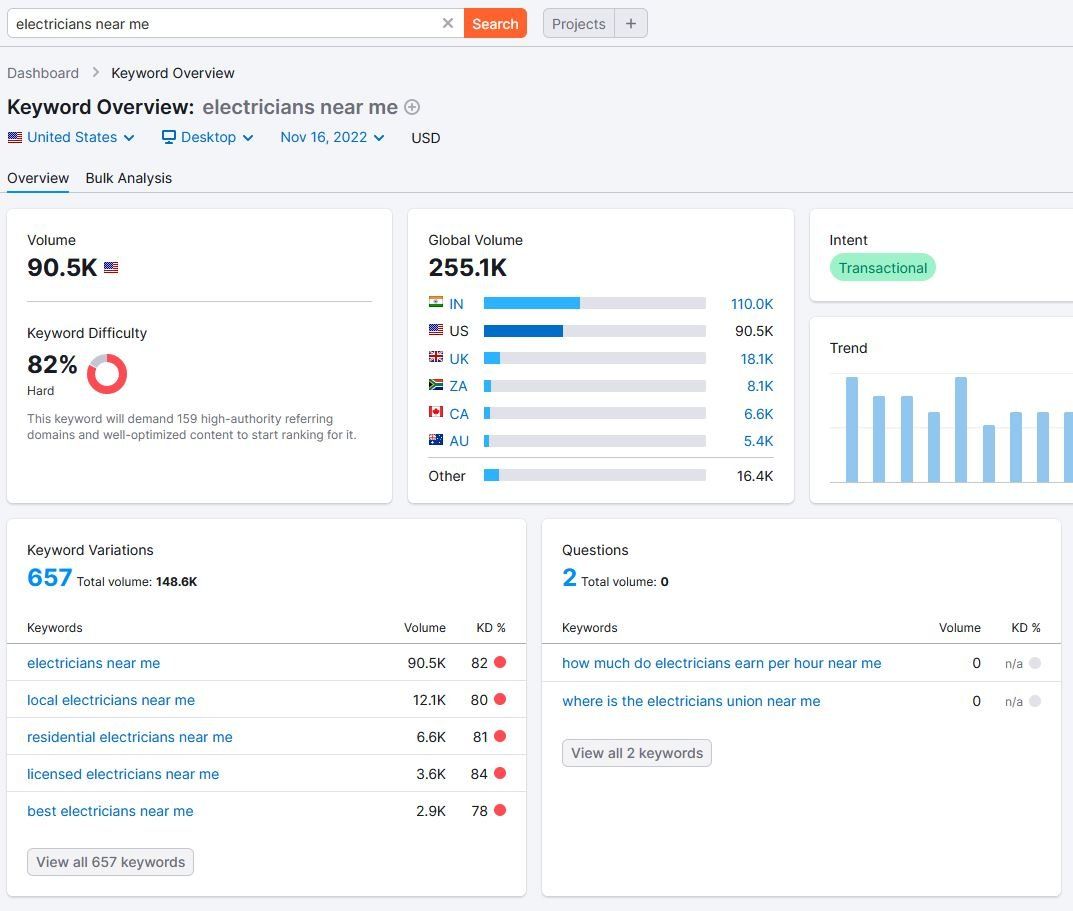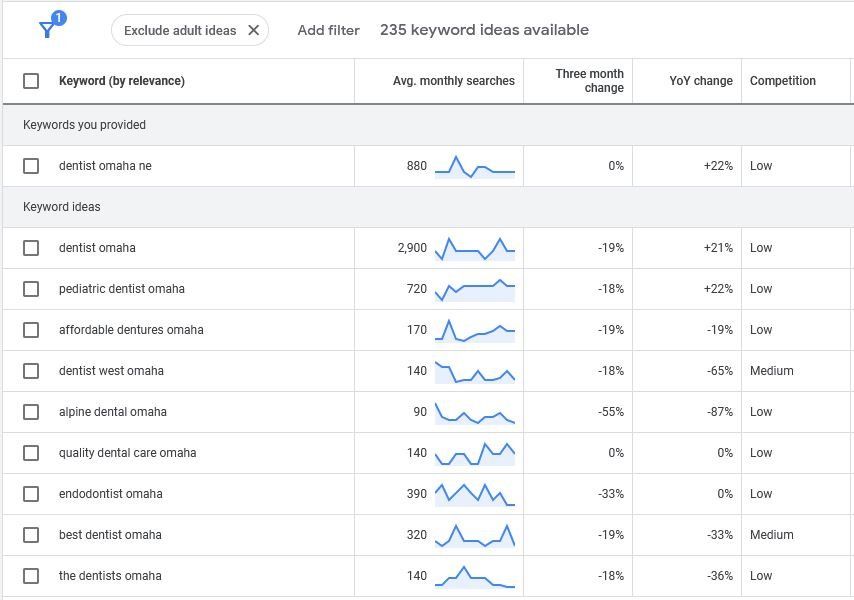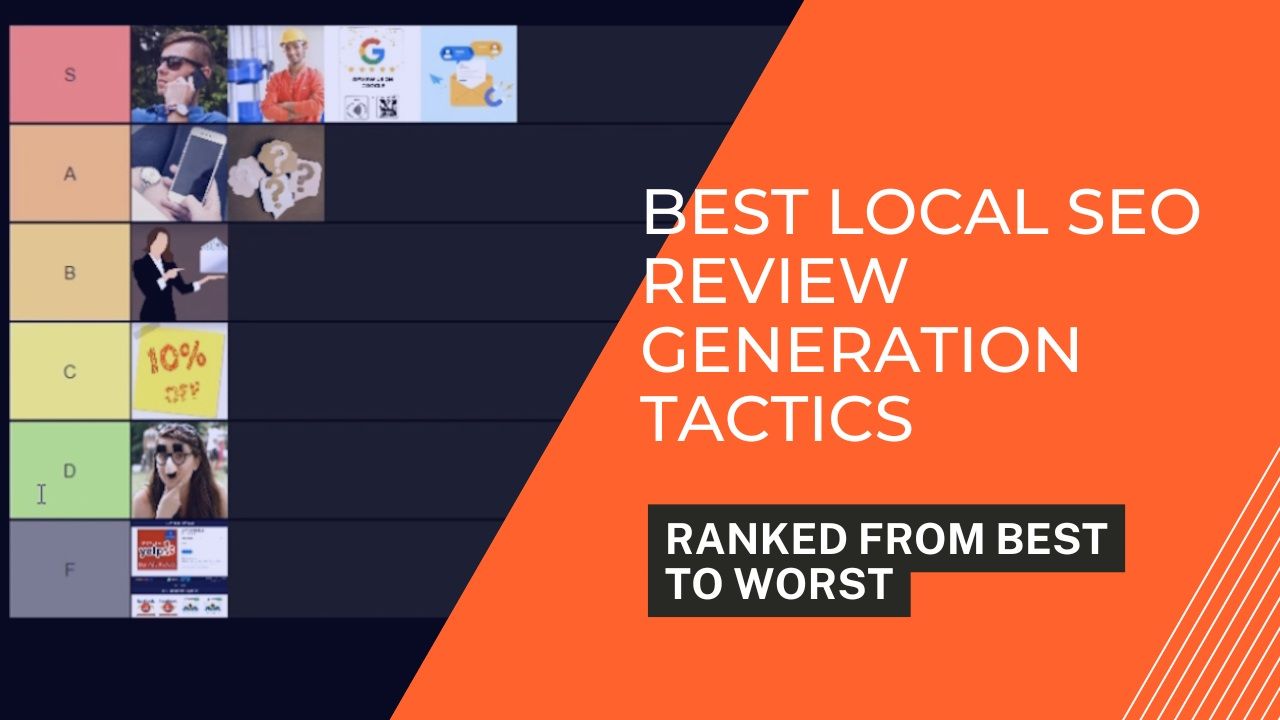
When it comes to driving traffic to your website, learning the ins and outs of all that's involved can be a long, difficult process. It's hard to know what keywords to target and how they should be structured on your website.
Here's the secret, there's actually plenty of opportunities for "low-hanging fruit" keywords out there, all ripe for the picking, or in this case, the ranking.
What Are Low-Hanging Fruit Keywords?
Before we dive into how to find these keywords, let's take a minute to define this term and make sure we're all on the same page. "Low-hanging fruit" is simply a keyword phrase that has plenty of opportunity to rank on the first page of Google with less effort than a more competitive keyword.
In this article, we're going to show you some tools you can use to find these easy opportunities quickly and for free. Then, we're going to give you tips on how to implement them on your website so you can be on your way to ranking higher and attracting more visitors to your website.
What Tools Can I Use to Find the Keywords?
There plenty of tools out there that you can use to find low hanging fruit keywords and it doesn't really matter which one you use. However, the key is to find tools that allow you to find what's called a 'keyword difficulty' score, or 'competition' score.
Today, we'll share a few tools we know of. They are:
- SEMRush
- aHRefs
- uberSuggest
The three tools accomplish the same goals, but there are a few differences we've noticed from using them over the years. Here some quick descriptions below:
SEMrush - Paid
SEMRush is a paid tool that allows you to identify and discover millions of keyword opportunities. Like the other tools mentioned above, you can see what keywords you already rank for, as well as what your competitors rank for.
In our opinion, SEMRush has the best keyword data when it comes to finding low hanging fruit keywords. This is the tool we use at our agency and we highly recommend it if you are able to invest into their monthly cost.

aHrefs - Paid / Free
aHrefs is similar to SEMRush and is commonly found in your average SEO agency's toolkit. While we prefer SEMRush, aHrefs delivers exceptional keyword data that is updated regularly. The also offer a free search tool that gives you a good amount of results with no cost.
You can find their free option here: aHrefs Keyword Generator
Ubersuggest - Free / Paid
Ubersuggest is a fantastic keyword research tool that gives you excellent data as well. Unfortunately, the more recent limitations that have been added to this tool only allow you to do so much per day.
However, the data you receive with the free searches it gives you is up there with the data you'll receive with the paid tools. It's great!
How To Prepare Your Keyword Sheet
To perform this research well, you're going to need to capture the following information for each keyword you search for using your preferred tool:
- Keyword Name
- Volume
- Difficulty
- URL of #1 Result
Ideally, you can set up a spreadsheet with the columns above and it'll be just fine. Sure, there's so much more data you can gather on keywords, but for the easy ones, we're going to keep it simple this time around.
Capturing the URL of the #1 result for the keyword is important. Simply type your discovered keyword into Google to see who is currently ranked at the top, then add the page URL to your spreadsheet. It's ok to exclude top 10 lists like the ones that show up from Yelp and other directory websites.
See below for an example of what your spreadsheet could look like:
Start With Keywords You Already Rank For
At our agency, we believe the first rule of increasing a website's traffic is to identify keywords that you already rank for and improve them.
This also includes finding keywords that you rank for on the 2nd page and beyond. Often times, a little bit of optimization will help bump these keywords up to the first page and bring you more traffic in a matter of weeks.
Next, Find Competitor Keywords
Once you've done the research to identify the keywords you already rank for and want to improve, you should use one of your chosen tools to see what keywords your competitors rank for as well. It's a good idea to start with the top competitors your niche or even local area.
This strategy really helps you to uncover opportunities that your competition isn't putting enough effort into. For example, if your competitor has keywords ranking on the 2nd page of Google or later, they may not be targeting them specifically, but still rank for them due to Google thinking their page is related.
You can capture these keywords and give them proper attention, which in turn will help you earn a higher ranking than what your competitor has.
Finding Brand New Keyword Opportunities
New keywords are keywords that neither you or your competitors rank for. There are several ways on how to find new keywords that are also low hanging fruit opportunities. Here is what we recommend:
1. Keyword Lists
You can find pre-existing lists of keywords that are related to your business and sort through them to add to your own list. To do this, you need to find keyword lists that are relevant to your website and niche. Most of these lists will be on forums and other places like blogs.
Just search Google for "YOUR NICHE + keyword list", so if you are an HVAC company, you'd search for "hvac keyword list".
Some of these lists already provide the volume and difficulty, but in case they don't, you can punch each of the terms you want into one of the tools we mentioned above to fill out your spreadsheet.
2. Google Keyword Tool
This is a very powerful tool for finding keywords and niches. The best thing about this tool is that it's free. It provides all of the data you'll need to complete a full spreadsheet and best of all, it's Google's data.
To do this, you'll need to sign up for a Google Adwords account. Once you're signed in, go to Tools > Keyword Planner and perform a search. This is where you'll see a slew of valuable information about these keywords, such as search volume and competition level.
Google's Keyword Planner tool is also one of the only free keyword tools that allows you to search for keyword demand by a specific geographical area.

3. SEMrush Keyword Magic Tool
This is our favorite tool for keyword research and finding low-hanging fruit keyword opportunities. Here's a quick list on how to find keywords that are easy to rank on Google's 1st page for.
- Go to SEMRush's Keyword Magic Tool
- Type in your term, service, niche or idea.
- Semrush will give you a list of related keywords and data.
- Filter the list by keyword difficulty and word count.
- Set the difficulty range from 0 - 29, the word count to be 4 or greater.
- Be sure to sort the list by volume.
- Add the keywords you want to your spreadsheet.
You may be surprised at how many great keywords you'll find in your niche that have low competition. They're always out there waiting for someone to target them.
Similar strategies can be performed on aHrefs and Ubersuggest. You simply need to filter for low competition keywords. It's recommended to filter for keywords that have 4 words or more, but this will vary based on your business and the type of content you are trying to rank.
Implementing Your New Keywords
Now that you've got your low-hanging fruit keywords, it's time to implement them into your website. You'll want to have captured the top URL that is ranking for each keyword (as mentioned above). This will give you some insight into what you need to do to achieve a page 1 ranking in Google.
1. Keyword Targeting With Page Metadata
This is the simplest way of implementing your new keywords. The strategy involves making sure that your page targets the relevant keyword in its title tag, meta description, and URL.
If you do end up changing the URL of your website's page, be sure to implement a 301 redirect or you could hurt your existing SEO.
2. Content Targeting
This usually goes hand-in-hand with the optimization strategy above, especially if you are trying to rank for a new keyword. To do this successfully, you'll need to write content that is relevant to the keyword you are targeting and follow proper on-page optimization strategies.
The goal is to write quality content and provide information that is worthy of being on the 1st page of Google for they keyword you're trying to rank for. How do you know if your content is worthy? Well, that's why we recommended you write down the URL of who is currently ranking #1 for the term.
By doing this, you'll have a great benchmark of what to aim for content wise, design wise, structure wise and more. That URL you placed in your spreadsheet ranks #1 for that keyword because Google finds it to be the most relevant to the searcher. If you want to rank too, you'll need to give the searcher more.
3. Blog Posts and Articles
If you have a blog on your website, it's important to make sure that each blog post targets a particular keyword. If you don't have a blog....get one now! Just kidding....maybe....you really should have a blog on your website.
Anyway, targeting keywords using a new or existing blog post can be done by making sure that the title tag and meta description use the relevant keyword for that post, just like normal pages do.
You also need to make sure the blog goes into detail, answers questions and provides great information around the keyword you've chosen.
If you can remember to do it, it's also important to have your blog posts reference each other. You can do this by linking to them where relevant within your content. You've likely seen it done in this article a number of times.
4. Promote Your Content on Social Media
By using social media, you can help improve your website's rankings in organic search engine results. This is primarily because social media is an easy way to get visitors to your website and you can't rank without having traffic first.
Additionally, sharing articles and pages from your website to social media is a great way to get them seen by Google's search engine and more quickly determine how to rank your newly optimized content.
5. BONUS TACTIC - Use Google Search Console
This is something we've done at our agency for years to get thousands of keywords on the 1st page of Google for our clients. After performing any optimizations above to your website, you need to submit your website to Google.
Unless you've got a huge website and a very well known brand, Google won't visit you very often. So what can the little guy do? We get Google's attention by asking them to check out our newly updated website. This is done using Google Search Console's sitemap submission function and request indexing feature.
Sending the sitemap to Google will trigger a crawl, allowing them to easily see an index of all of your website's pages. Using the request indexing feature will allow you to request that Google view a specific page on your site that you recently updated.
This means you don't have to wait on them to visit you, which could take weeks or even longer. You can find more information on Google's request indexing tool at this link.

Did You Pick The Right Keywords?
Concentrating on low-hanging fruit keywords can greatly improve your organic search rankings and fast. Do you think you picked a good set of keywords for your website?
Get in touch with us here at Tekkii if you have questions and we can help you find out. Thanks for reading!
Article by:

Looking to discover how you can improve your results from the web? Contact us to request a free consultation and we'll help you find out.
Recent Articles
Share This Article
Get the Latest
Subscribe for more digital marketing insights & tips to grow your business.
Leave A Comment




